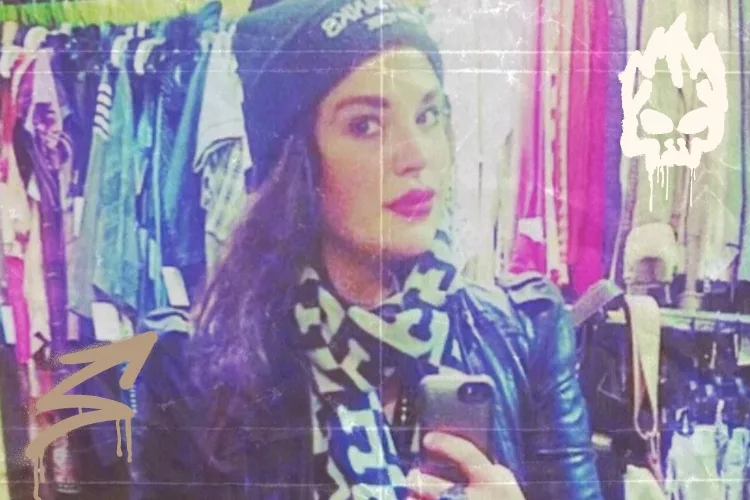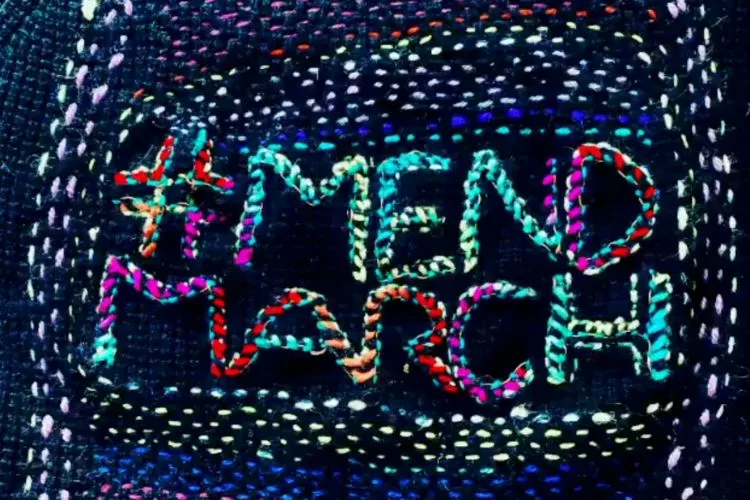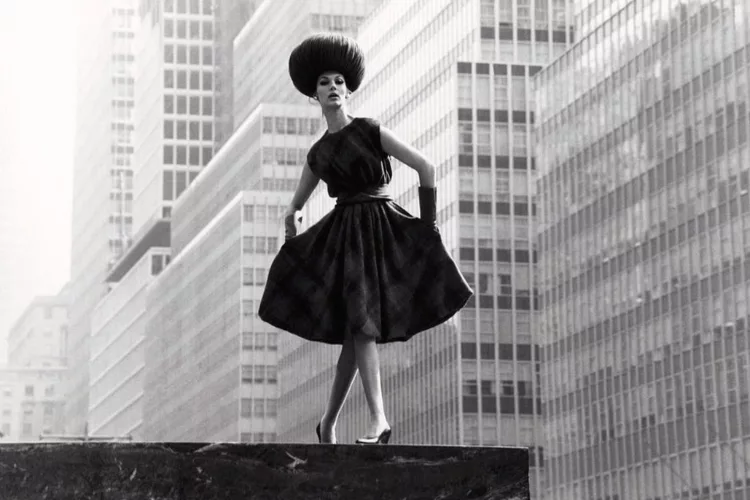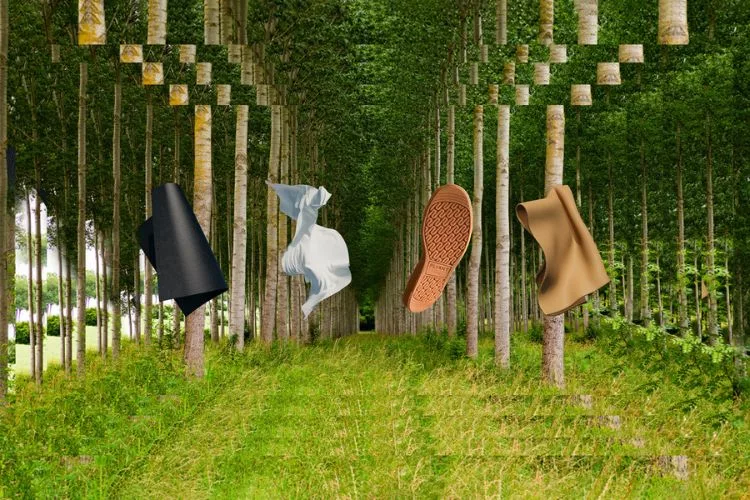As someone who once questioned the impact of my actions, these books have profoundly altered our perspective on the significance of personal choices in combating climate change. From authors involved in environmental activism, sustainable fashion, journalism, and more, come fresh insights into shopping consciously with a reduced environmental impact. We picked these books for their focus on topics of plastic reduction, zero waste, slow fashion, cutting down consumption, and thought-provoking essays and poetry on saving our planet.
All products featured on No Kill Mag are independently selected by our writers or editors. However, when you buy something through our retail links, we may earn an affiliate commission.
All We Can Save
Edited by Ayana Elizabeth Johnson and Katharine K. Wilkinson
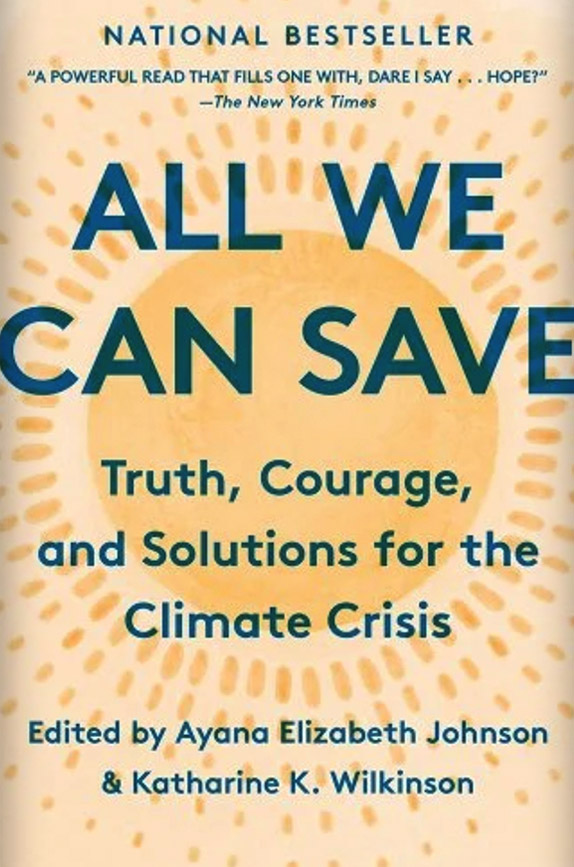
One of our favorite books at No Kill Mag, All We Can Save features a collection of essays and poems from women leading the climate movement. Women from around the U.S. including teachers, scientists, designers, innovators, and so many others, share their thoughts on action to foster our future.
From the Publisher:
“A powerful read that fills one with, dare I say . . . hope?”–The New York Times
There is a renaissance blooming in the climate movement: leadership that is more characteristically feminine and more faithfully feminist, rooted in compassion, connection, creativity, and collaboration. While it’s clear that women and girls are vital voices and agents of change for this planet, they are too often missing from the proverbial table. More than a problem of bias, it’s a dynamic that sets us up for failure. To change everything, we need everyone.
All We Can Save illuminates the expertise and insights of dozens of diverse women leading on climate in the United States –scientists, journalists, farmers, lawyers, teachers, activists, innovators, wonks, and designers, across generations, geographies, and race –and aims to advance a more representative, nuanced, and solution-oriented public conversation on the climate crisis. These women offer a spectrum of ideas and insights for how we can rapidly, radically reshape society.
Intermixing essays with poetry and art, this book is both a balm and a guide for knowing and holding what has been done to the world, while bolstering our resolve never to give up on one another or our collective future. We must summon truth, courage, and solutions to turn away from the brink and toward life-giving possibility. Curated by two climate leaders, the book is a collection and celebration of visionaries who are leading us on a path toward all we can save.
The Day the World Stops Shopping: How Ending Consumerism Saves the Environment and Ourselves
J. B. MacKinnon
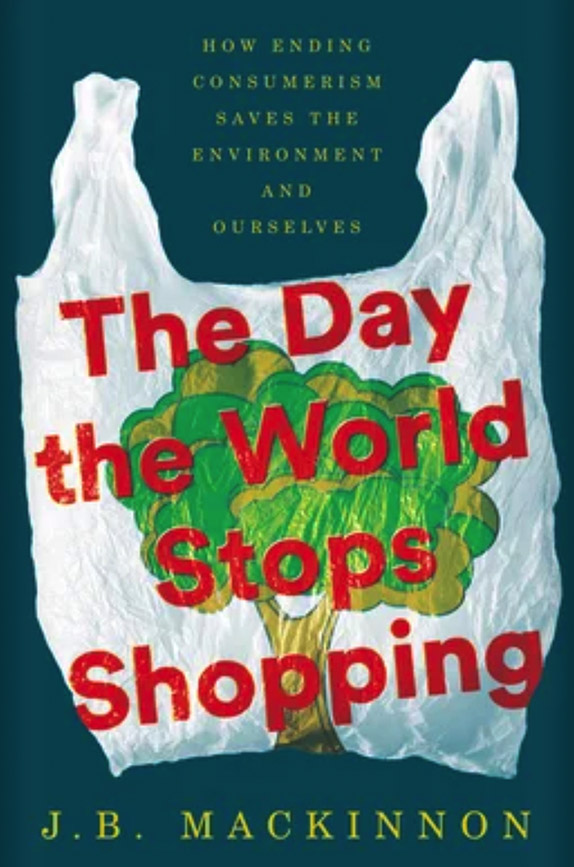
Journalist J.B. MacKinnon explores the paradox of consuming to support the economy and stopping shopping to save the planet. While searching around the world for answers, research for this book was interrupted by the pandemic and MacKinnon was able to test his ideas as shopping ceased. Combining his own research with findings from climate experts, MacKinnon found much can be gained from cutting down on consumerism.
From the Publisher:
We can’t stop shopping. And yet we must. This is the consumer dilemma.
The economy says we must always consume more: even the slightest drop in spending leads to widespread unemployment, bankruptcy, and home foreclosure.
The planet says we consume too much: in America, we burn the earth’s resources at a rate five times faster than it can regenerate. And despite efforts to “green” our consumption–by recycling, increasing energy efficiency, or using solar power–we have yet to see a decline in global carbon emissions.
Addressing this paradox head-on, acclaimed journalist J. B. MacKinnon asks, What would really happen if we simply stopped shopping? Is there a way to reduce our consumption to earth-saving levels without triggering economic collapse? At first this question took him around the world, seeking answers from America’s big-box stores to the hunter-gatherer cultures of Namibia to communities in Ecuador that consume at an exactly sustainable rate. Then the thought experiment came shockingly true: the coronavirus brought shopping to a halt, and MacKinnon’s ideas were tested in real time.
Drawing from experts in fields ranging from climate change to economics, MacKinnon investigates how living with less would change our planet, our society, and ourselves. Along the way, he reveals just how much we stand to gain: An investment in our physical and emotional wellness. The pleasure of caring for our possessions. Closer relationships with our natural world and one another. Imaginative and inspiring, The Day the World Stops Shopping will embolden you to envision another way.
How to Give Up Plastic: A Guide to Changing the World, One Plastic Bottle at a Time
Will McCallum
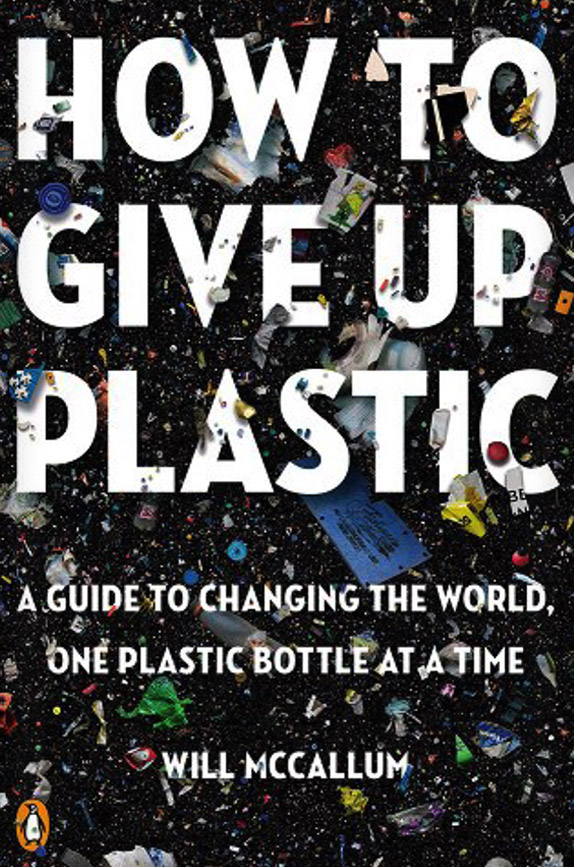
How to Give Up Plastic by Will McCallum wants to give people tools to help save the world’s oceans by giving up disposable plastic. Quick and easy changes like using reusable straws and limiting microfiber release in laundry are shared as accessible tips that anyone can work into their life.
From the Publisher: By arming you with a wealth of facts about global plastic consumption and anecdotes from activists fighting plastic around the world, you’ll also learn how to advocate to businesses and leaders in your community and across the country to commit to eliminating disposable plastics for good.
It takes 450 years for a plastic bottle to fully biodegrade, and there are around 12.7 million tons of plastic entering the ocean each year. At our current pace, in the year 2050 there could be more plastic in the oceans than fish, by weight. These are alarming figures, but plastic pollution is an environmental crisis with a solution we can all contribute to.
Don’t Be Trashy
Tara McKenna
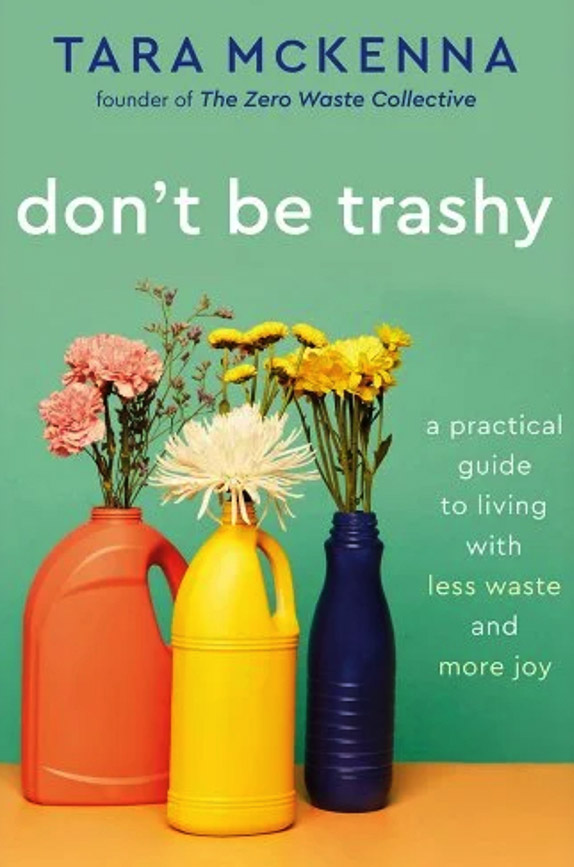
Tara McKenna is the creator of the Zero Waste Collective and in Don’t Be Trashy she talks habit building for a more ethical lifestyle. Covering a wide range from fast fashion to home goods, McKenna encourages conscious consumption over convenience.
From the Publisher: Say goodbye to your bursting toiletries bag, fast fashion, and all the plastic crowding your pantry. It’s time to build less trashy habits for a more sustainable and ethical life. With relatable stories, compassion, and a realistic perspective, Tara McKenna will show you how in this ultimate guide to going zero waste(ish).
We’re all trapped in a wasteful convenience-based cycle, but Don’t Be Trashy offers an alternative: an approach to reducing waste that emphasizes progress over perfection. McKenna guides you month by month through a year of reducing consumption, covering:
– Decluttering and turning off the flow of stuff into your home
– Breaking up with fast fashion and developing a capsule wardrobe
– Cutting off your supply of single-use plastic in your kitchen, cleaning supplies, and bathroom
– Investing in home goods that’ll last for decades without breaking the bank
– And more!
The World Is On Fire But We’re Still Buying Shoes
Alec Leach
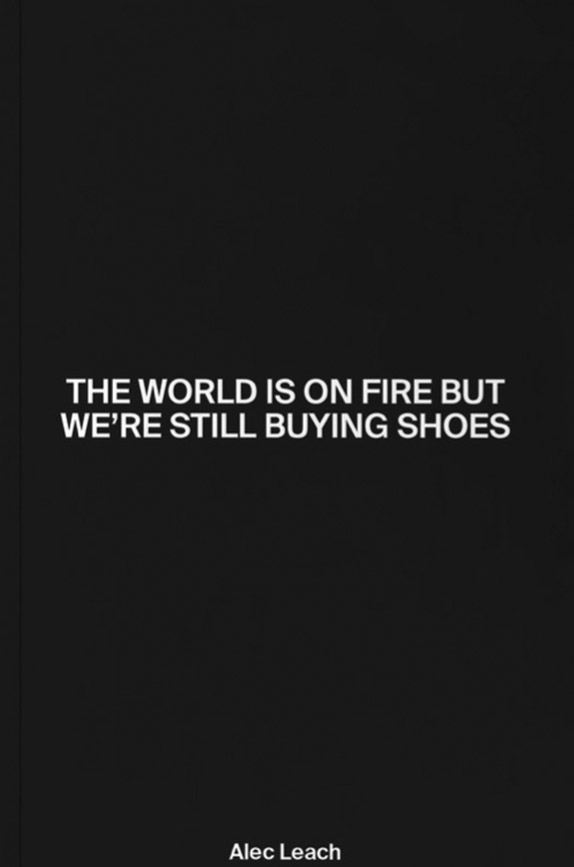
Former fashion editor at Highsnobiety and founder of @future__dust, a sustainable fashion platform, Alec Leach’s debut book is a manifesto for slow, intentional fashion. The book examines our desires that fuel continued shopping when we know it’s bad for the planet, along with the industry’s attempts to conceal damaging impacts.
From Alec:
I wrote this book to explain why we love to shop so much, how fashion keeps us hungry for more, and the tricks it plays to cover up its true impact on the planet.
It’s a journey touching on consumerism, sneaker hype, greenwashing, Karl Marx, mindfulness and everything in between.
The result is a manifesto for a slower, more intentional approach to fashion, one that redefines what shopping is –and what it isn’t.
–Natalie LaBarberA
Related Articles


